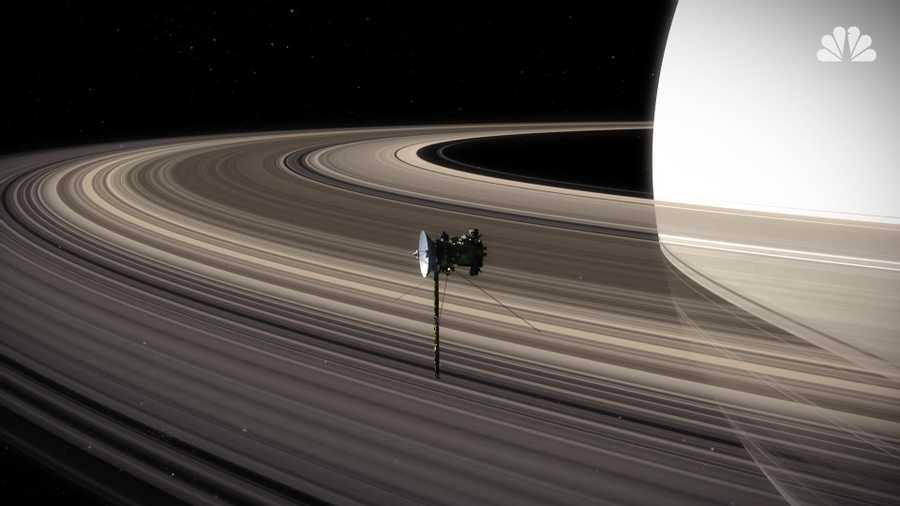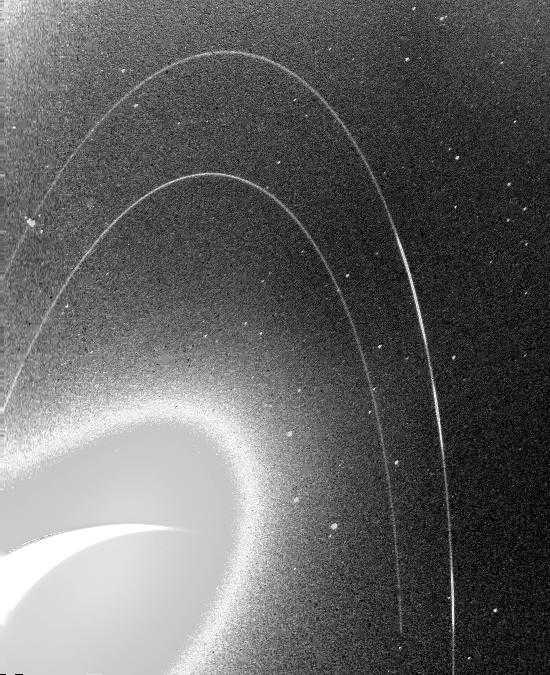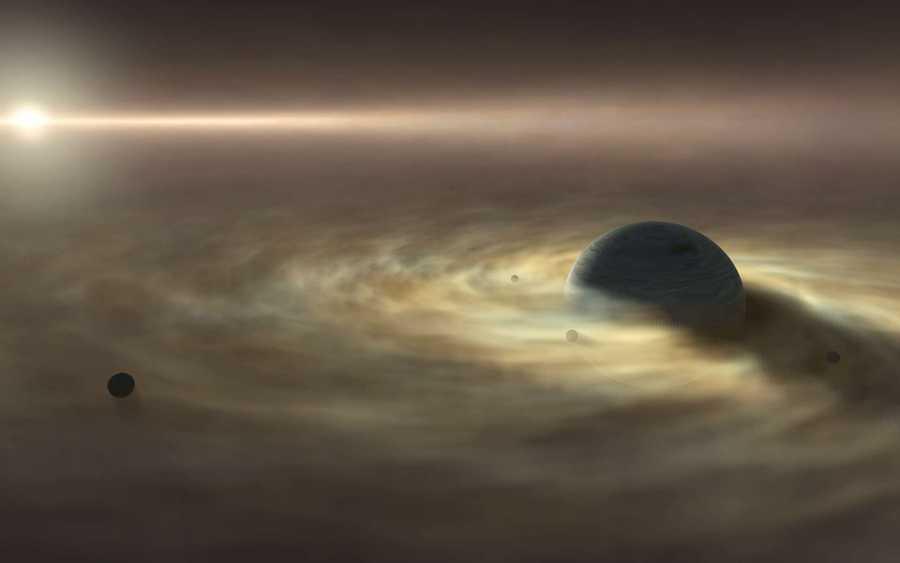Rings
Saturn's rings are thought to be pieces of comets, asteroids or shattered moons that broke up before they reached the planet, torn apart by Saturn's powerful gravity. They are made of billions of small chunks of ice and rock coated with another material such as dust. The ring particles mostly range from tiny, dust-sized icy grains to chunks as big as a house. A few particles are as large as mountains. The rings would look mostly white if you looked at them from the cloud tops of Saturn, and interestingly, each ring orbits at a different speed around the planet.
Saturn's ring system extends up to 175,000 miles (282,000 kilometers) from the planet, yet the vertical height is typically about 30 feet (10 meters) in the main rings. Named alphabetically in the order they were discovered, the rings are relatively close to each other, with the exception of a gap measuring 2,920 miles (4,700 kilometers) wide called the Cassini Division that separates Rings A and B. The main rings are A, B and C. Rings D, E, F and G are fainter and more recently discovered.
Starting at Saturn and moving outward, there is the D ring, C ring, B ring, Cassini Division, A ring, F ring, G ring, and finally, the E ring. Much farther out, there is the very faint Phoebe ring in the orbit of Saturn's moon Phoebe.
23
50 reads
CURATED FROM
IDEAS CURATED BY
I'm passionate about helping people live their best lives. I'm a lifestyle coach & burnout coach.
The idea is part of this collection:
Learn more about technologyandthefuture with this collection
How to make sustainable choices in everyday life
Identifying ways to reduce waste and conserve resources
Understanding the impact of human actions on the environment
Related collections
Similar ideas to Rings
Rings
Neptune has at least five main rings and four prominent ring arcs that we know of so far.
Starting near the planet and moving outward, the main rings are named Galle, Leverrier, Lassell, Arago and Adams. The rings are thought to be relatively young and short-lived.
Neptune's ring sys...
The fundamentals of music theory
- The musical alphabet consists of seven letters: A, B, C, D, E, F, G, and repeat. They are the white keys, and each note has a specific pitch.
- There are 12 notes on the piano keyboard: A, A#/B♭, B, C, C#/D♭,...
Formation
Saturn took shape when the rest of the solar system formed about 4.5 billion years ago, when gravity pulled swirling gas and dust in to become this gas giant.
About 4 billion years ago, Saturn settled into its current position in the outer solar system, where it is the sixth planet from th...
Read & Learn
20x Faster
without
deepstash
with
deepstash
with
deepstash
Personalized microlearning
—
100+ Learning Journeys
—
Access to 200,000+ ideas
—
Access to the mobile app
—
Unlimited idea saving
—
—
Unlimited history
—
—
Unlimited listening to ideas
—
—
Downloading & offline access
—
—
Supercharge your mind with one idea per day
Enter your email and spend 1 minute every day to learn something new.
I agree to receive email updates



